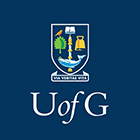- News and articles
- Find usIDP AustraliaIDP BahrainIDP BangladeshIDP CambodiaIDP CanadaIDP ChinaIDP EgyptIDP GhanaIDP Hong KongIDP IndiaIDP IndonesiaIDP IranIDP JordanIDP KenyaIDP KoreaIDP KuwaitIDP LebanonIDP MalaysiaIDP MauritiusIDP Middle EastIDP NepalIDP New ZealandIDP NigeriaIDP OmanIDP PakistanIDP PhilippinesIDP Saudi ArabiaIDP SingaporeIDP Sri LankaIDP Taiwan, ChinaIDP ThailandIDP TurkeyIDP UAEIDP VietnamIDP Corporate
- Social
- English
- Where we operate
- Courses
- Scholarships
- IELTS
- About IDP
- Student Essentials
- News and articles
- Find us
- Find us
- Find nearest IDP offices
- IDP Australia
- IDP Bahrain
- IDP Bangladesh
- IDP Cambodia
- IDP Canada
- IDP China
- IDP Egypt
- IDP Ghana
- IDP Hong Kong
- IDP India
- IDP Indonesia
- IDP Iran
- IDP Jordan
- IDP Kenya
- IDP Korea
- IDP Kuwait
- IDP Lebanon
- IDP Malaysia
- IDP Mauritius
- IDP Middle East
- IDP Nepal
- IDP New Zealand
- IDP Nigeria
- IDP Oman
- IDP Pakistan
- IDP Philippines
- IDP Saudi Arabia
- IDP Singapore
- IDP Sri Lanka
- IDP Taiwan, China
- IDP Thailand
- IDP Turkey
- IDP UAE
- IDP Vietnam
- IDP Corporate
- Social
- Language Switcher
- IDP Education /
- Colleges and Universities /
- United Kingdom /
- University of Glasgow /
- MA (SocSci) (Hons) Central ...

MA (SocSci) (Hons) Central and East European Studies with Quantitative Methods
At UNIVERSITY OF GLASGOW

Location
United Kingdom
Qualification
Undergraduate Masters
Fees
GBP25290
(2025)
Duration
4 Year(s)
Next intake
22 September 2025
Entry Score
6.5
IELTSCourse info
The University of Glasgow's Q-Step Centre offers programmes which develop your quantitative skills, or in other words, your ability to handle data and use numerical evidence. Developing quantitative skills and your confidence in using them, will really enhance your insight and understanding of the key issues you encounter in your chosen field of study.
The University of Glasgow Q-Step Centre offers five degree programmes that integrate quantitative skills training within the School of Social and Political Sciences. All of these programmes aim to engage you with meaningful ways of understanding the social world. We will teach you how to understand and analyse quantitative results, as well as how to present your own, and how to discuss their substantive implications. These are essential skills for understanding quantitative evidence presented in academic literature, but also for interrogating data in public media and government reports. Around one quarter of your study time will be devoted to quantitative methods. And our degrees also offer you the possibility to gain valuable experience by participating in internships with selected high-profile employers.
The 2004 and 2007 eastward enlargement of the EU and NATO, as well as ongoing developments in Russia, Ukraine, the other former Soviet states and the Balkans, mean there is a high demand for specialists in the field. Graduates have developed careers in the European Commission, the Foreign and Commonwealth Office, non-governmental organisations (NGOs), journalism and the business community.
You will study the history, economics, politics and sociology of the countries of Central and Eastern Europe. You will chart developments including processes of economic and territorial change, aspects of social and cultural diversity, migration and the role of the media. In addition, you will have the opportunity to study Hungarian,Czech, Polish, or Russian.
- Scholarships View all scholarships
- Internships
Entry requirements for University of Glasgow
Application Deadline
The application deadline isn't available Speak to an IDP counsellor for more detailed information
Further information
If you aren't eligible for the above entry requirements, you might have a chance to explore pathway options at University of Glasgow. If you want to find out more, speak to our counsellors.
THE World Ranking
87th / 1250
THE World RankingWhat our students think
We’ve haven’t received any reviews for this institution yet.
Recommended for you
- THE World Ranking:601
- Bachelor Degree
- Leicester , United Kingdom
- Next intake:09/2025
- GBP16250 (2025)
- Bachelor Degree with Honours
- Birmingham , United Kingdom
- Next intake:09/2025
- Entry Score: IELTS 6.5
- GBP22380 (2025)
- Bachelor Degree with Honours
- Egham , United Kingdom
- Next intake:09/2025
- Entry Score: IELTS 6.5
- GBP23800 (2025)
- Bachelor Degree with Honours
- Birmingham , United Kingdom
- Next intake:09/2025
- Bachelor Degree with Honours
- Newcastle upon Tyne , United Kingdom
- Next intake:09/2025
- Entry Score: IELTS 6.5
- GBP22900 (2025)
- Bachelor Degree with Honours
- Next intake:10/2025
- Entry Score: IELTS 6.0
- GBP12500 (2025)
- THE World Ranking:601
- Bachelor Degree with Honours
- Aberystwyth , United Kingdom
- Next intake:09/2025
- Bachelor Degree with Honours
- Next intake:10/2025
- Entry Score: IELTS 6.0
- GBP12500 (2025)
Your action plan
Step 1
Shortlist your courses
Choose the best three courses you’re most likely to pursue.
Step 2
Check your eligibility
Get an instant in-principle offer for courses with the IDP FastLane tag.
Step 3
Apply through IDP Live
Fill out the form once and use it to apply to multiple courses.
How does IDP FastLane work?
With the FastLane 'Offer in Principle', you'll know in minutes if you'll be accepted!
Select an institution and course
Create your academic profile
Submit your application for an 'Offer in Principle'
Your chosen institution(s) will send you a decision in minutes!
Get ready to apply with an expert counsellor




